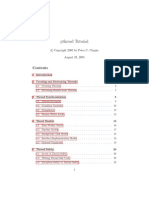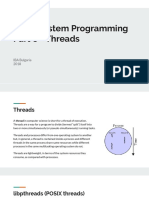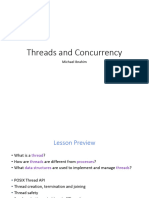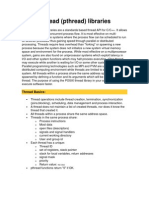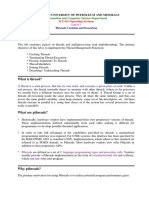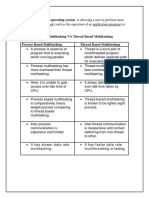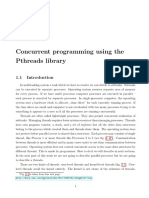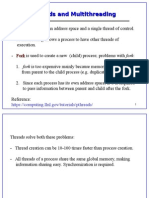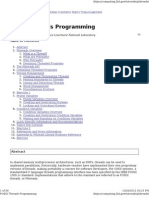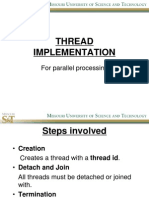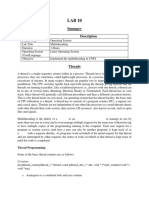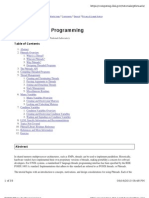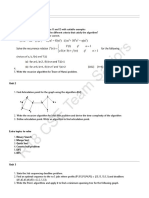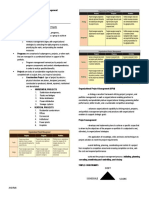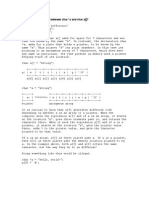0% found this document useful (0 votes)
143 views9 pagesPthreads Intro
This document provides an introduction to POSIX threads (pthreads). It discusses what threads are, why they are used, and what pthreads specifically are. It describes how to create and terminate threads using pthread API calls like pthread_create() and pthread_exit(). It also discusses how one thread can wait for another to terminate using pthread_join(). Finally, it provides a simple multithreaded "Hello World" example to demonstrate creating and joining multiple threads.
Uploaded by
Richard LarancuenteCopyright
© © All Rights Reserved
We take content rights seriously. If you suspect this is your content, claim it here.
Available Formats
Download as PPT, PDF, TXT or read online on Scribd
0% found this document useful (0 votes)
143 views9 pagesPthreads Intro
This document provides an introduction to POSIX threads (pthreads). It discusses what threads are, why they are used, and what pthreads specifically are. It describes how to create and terminate threads using pthread API calls like pthread_create() and pthread_exit(). It also discusses how one thread can wait for another to terminate using pthread_join(). Finally, it provides a simple multithreaded "Hello World" example to demonstrate creating and joining multiple threads.
Uploaded by
Richard LarancuenteCopyright
© © All Rights Reserved
We take content rights seriously. If you suspect this is your content, claim it here.
Available Formats
Download as PPT, PDF, TXT or read online on Scribd
/ 9


